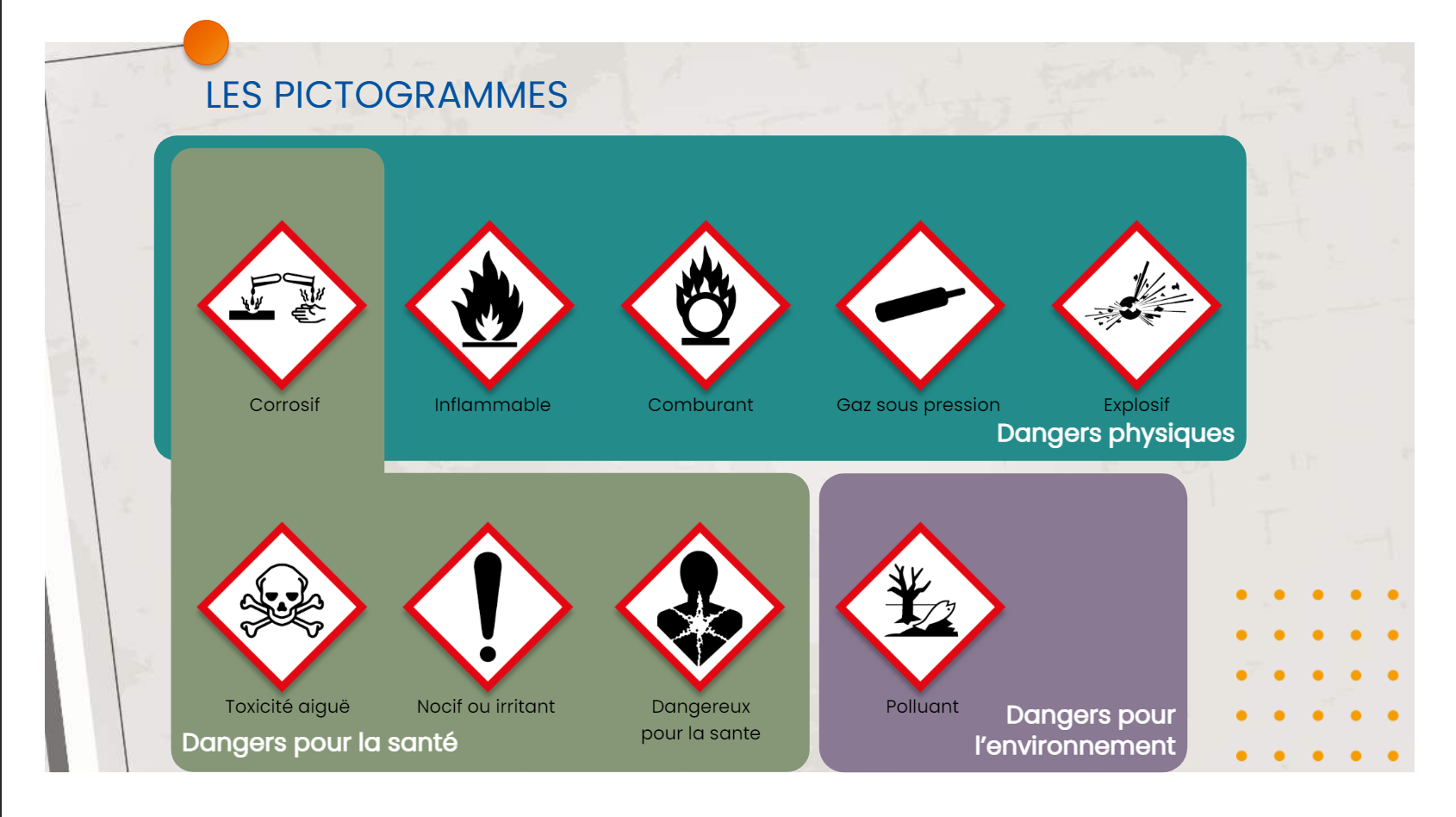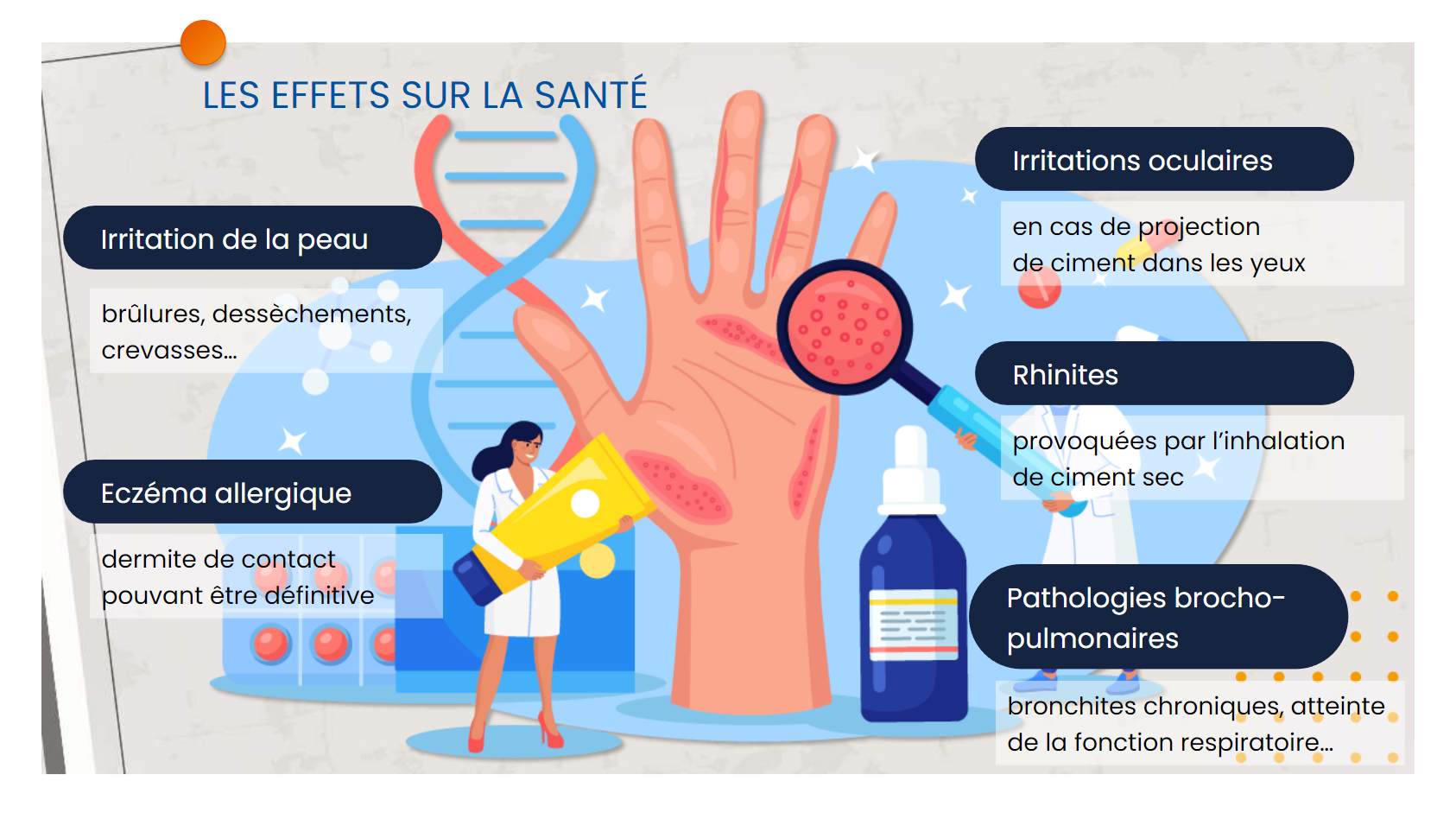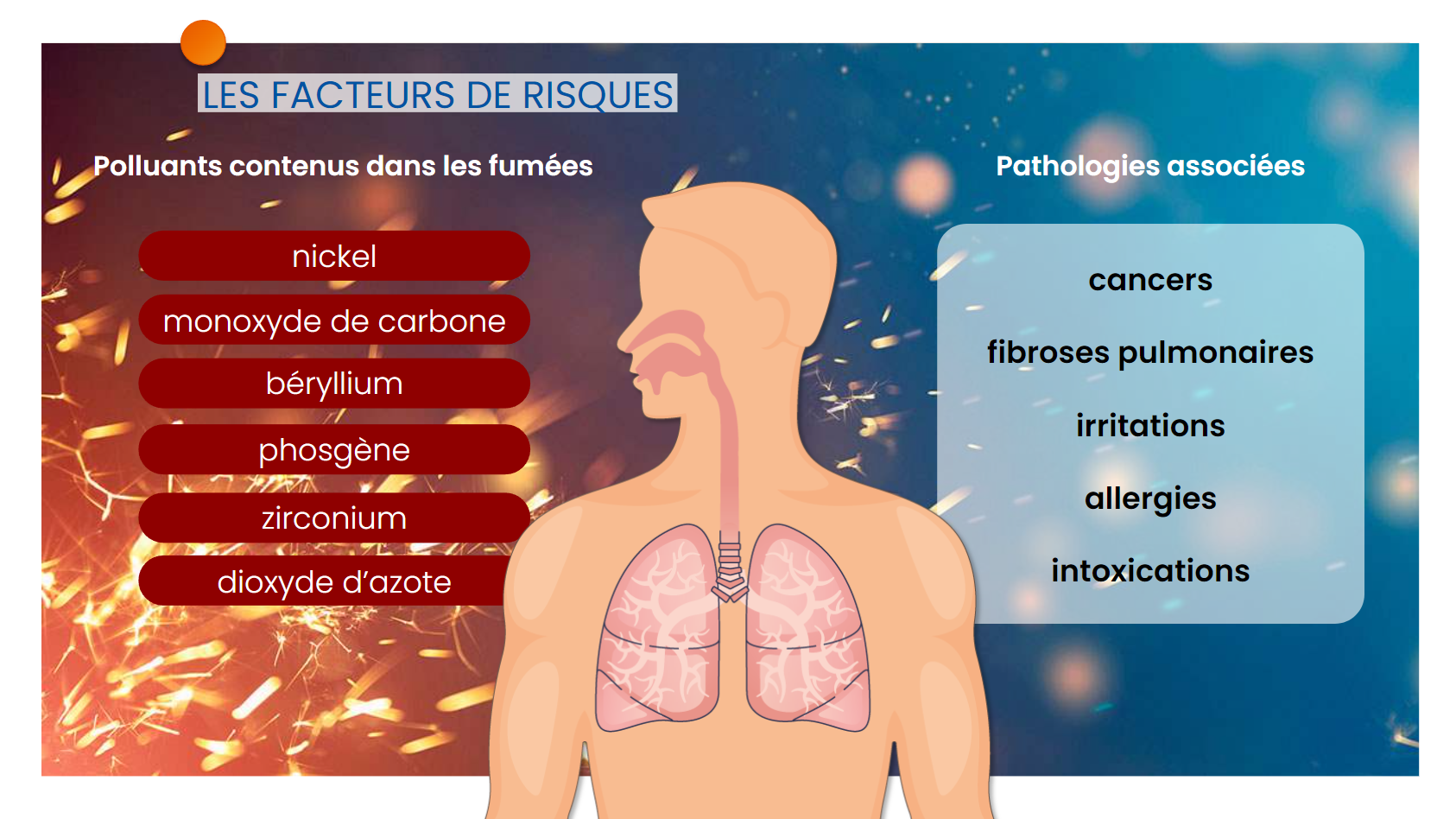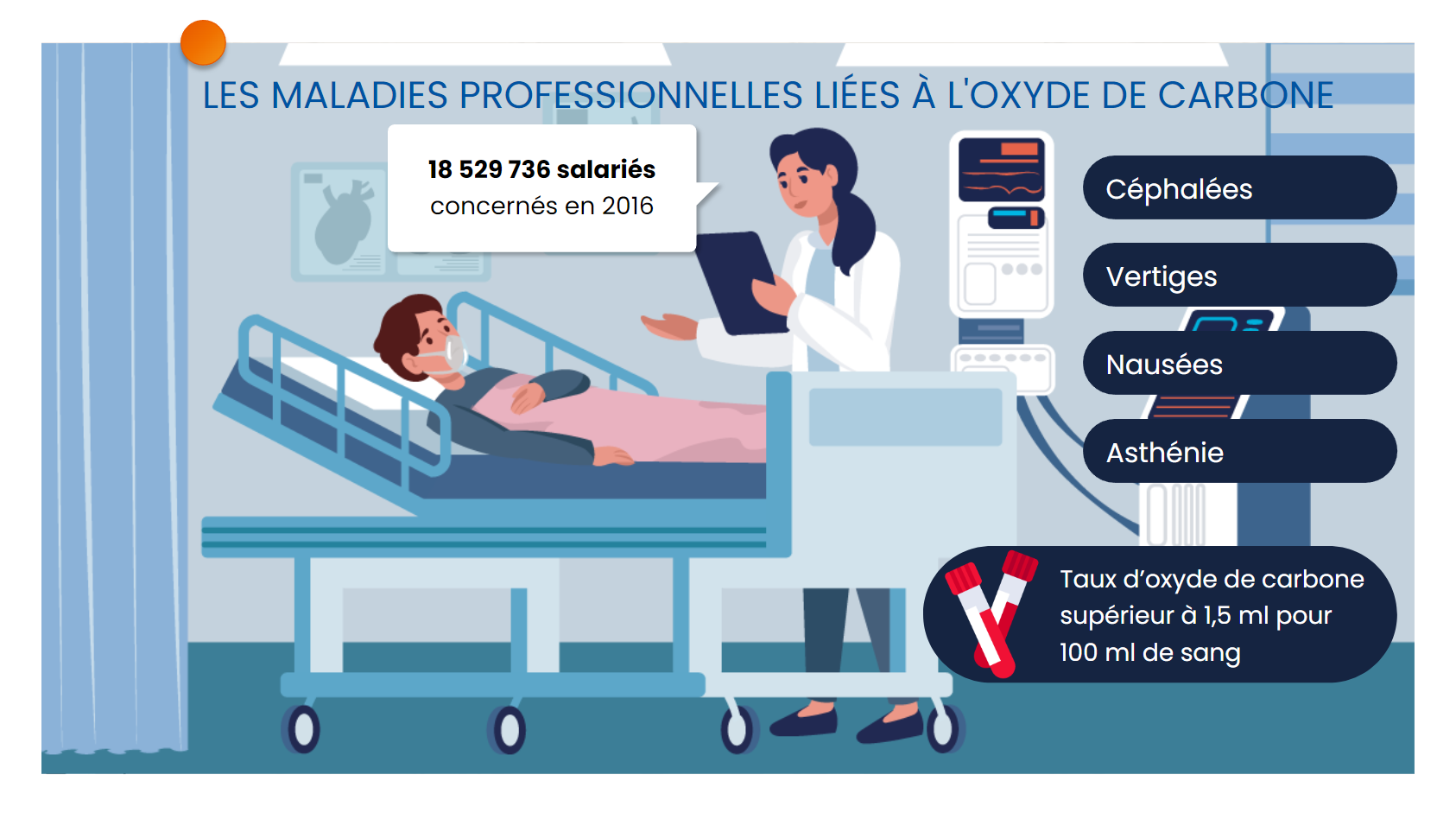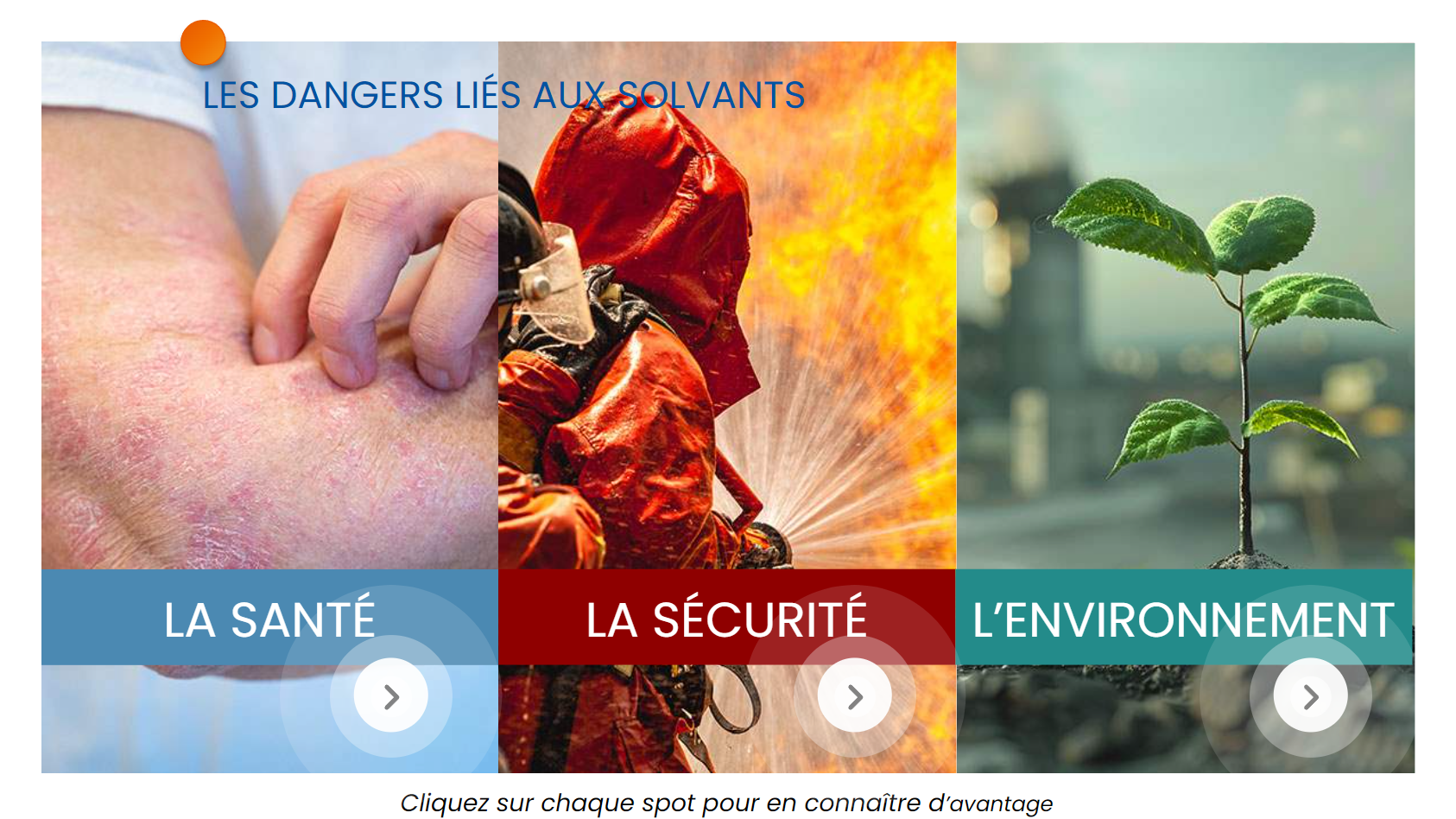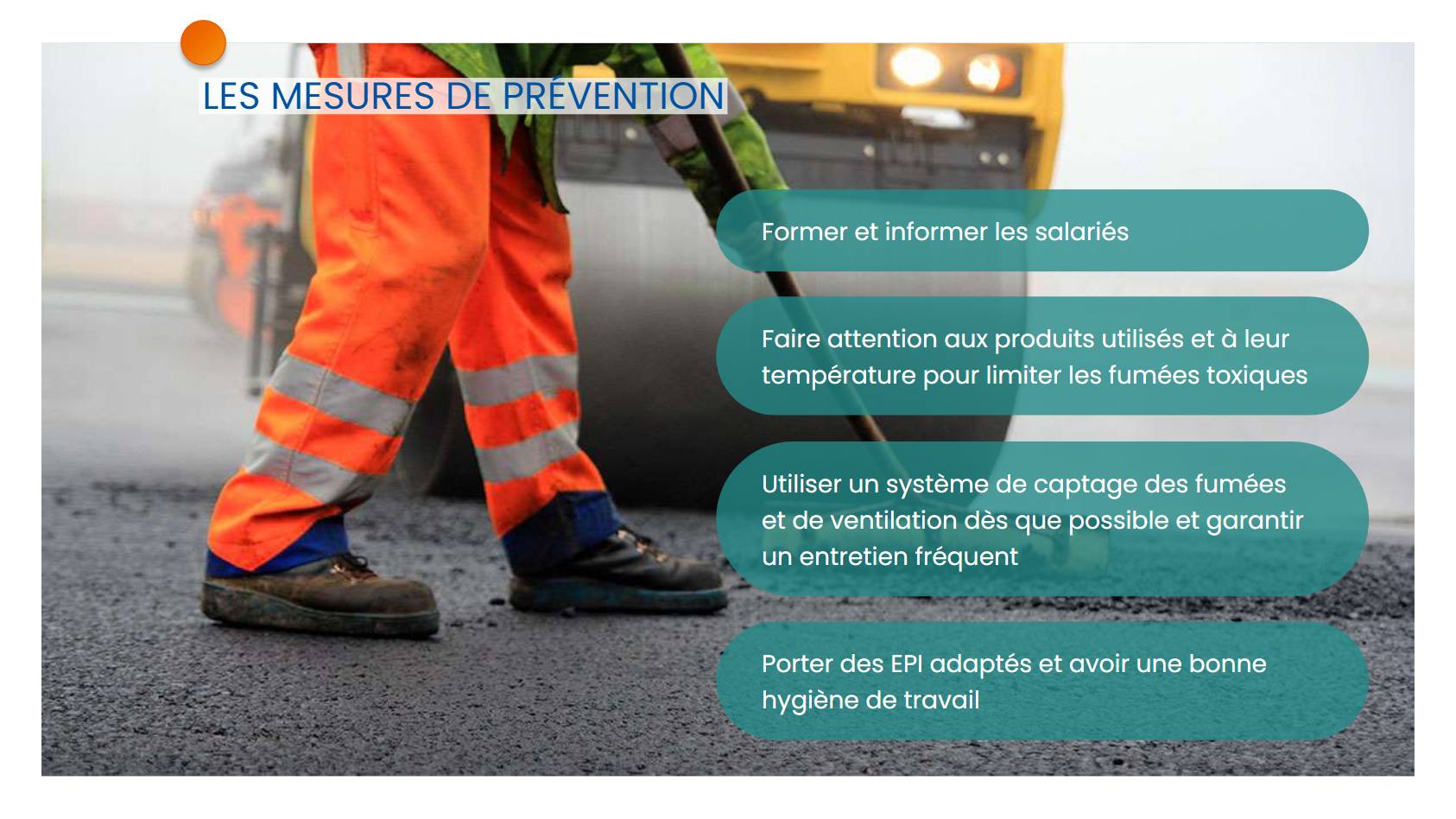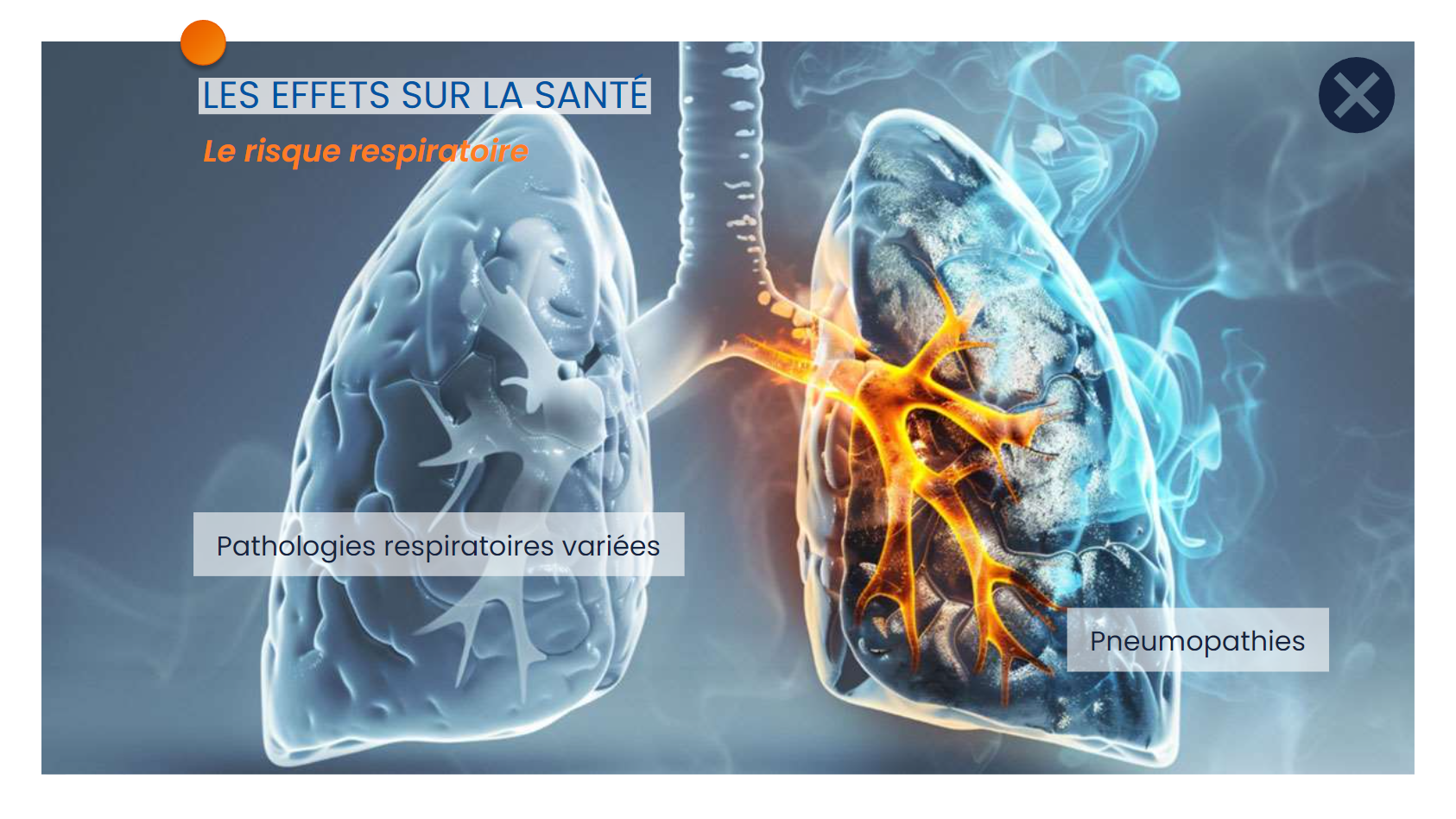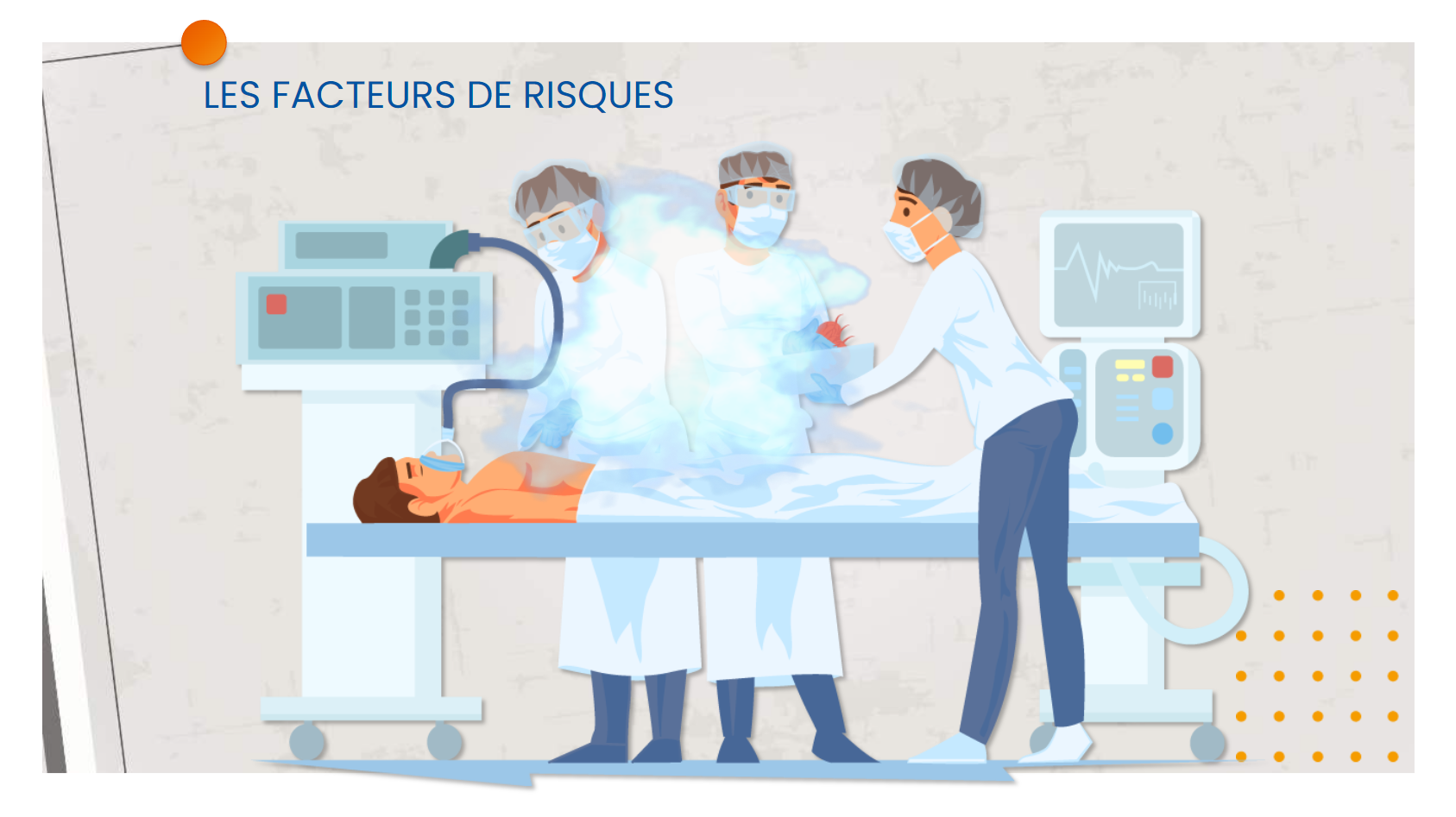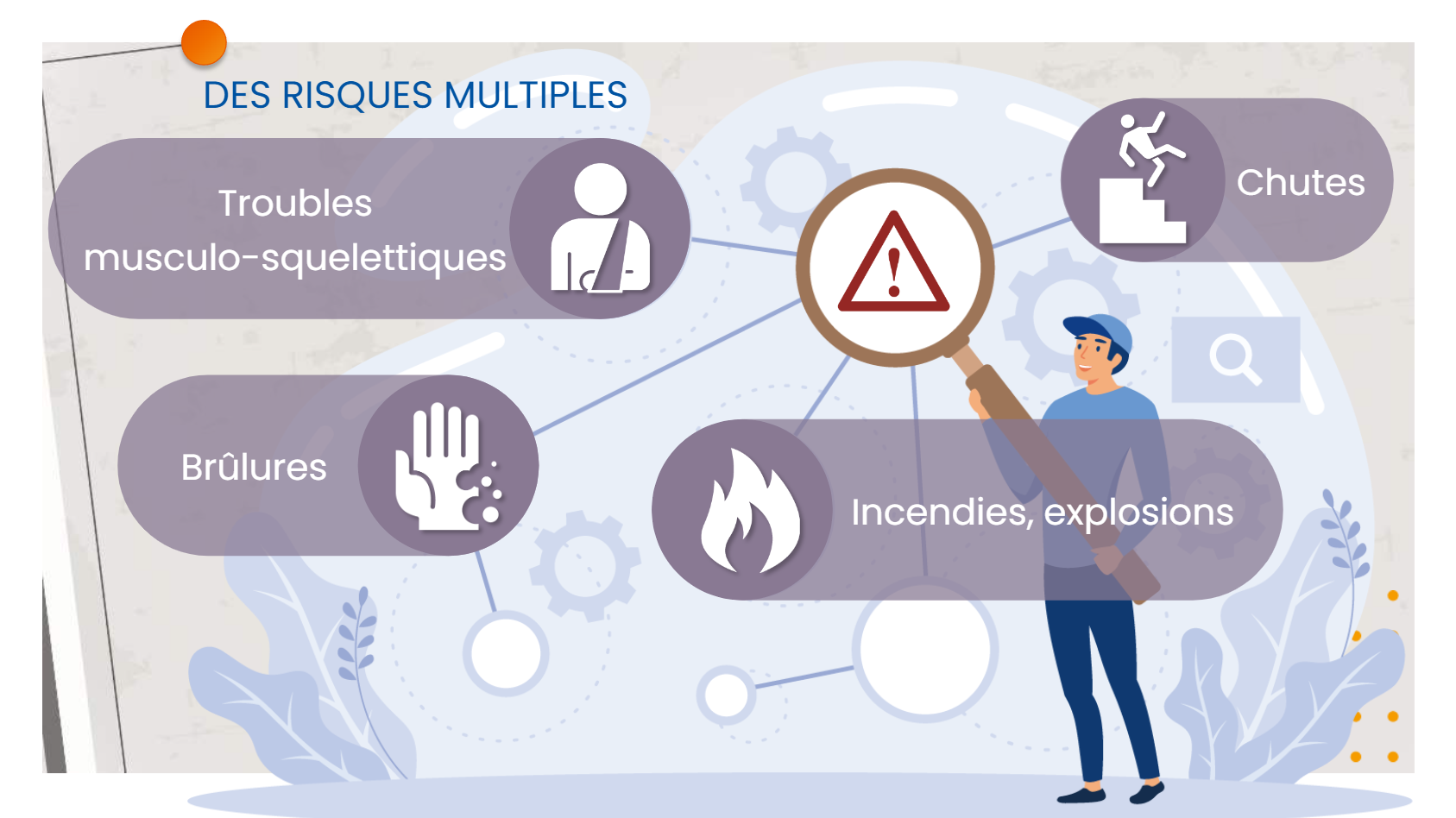This module presents the regulations on the classification, packaging and labeling of hazardous chemicals, which aim to ensure the protection of workers, consumers and the environment. Labeling constitutes the first source of information provided to the user concerning the dangers and the precautions to take when handling them. The CLP Regulation, a European text, establishes standards for the classification, labeling and packaging of chemical substances and mixtures.
Continue readingElearning module “Risks linked to cement”
This module offers prevention measures to reduce the risks associated with handling cements, which can cause skin and eye problems. Building, public works and concrete prefabrication professionals are particularly exposed. It is essential to follow the general principles of prevention and adopt a specific approach to prevent chemical risks, sometimes including the wearing of gloves as an essential protective measure.
Continue readingElearning module “The risks linked to formaldehyde”
This module addresses the subject of formaldehyde, a very reactive compound widely used in different professional fields. However, its reactivity results in hazardous properties, such as its flammability, corrosiveness and toxicity. Additionally, it can cause allergic reactions and increase the risk of cancer. Therefore, it is imperative to take preventive measures to limit workers’ exposure to this chemical.
Continue readingElearning module “The risks linked to welding fumes”
This module deals with metal welding fumes, which can, depending on their composition, concentration and duration of exposure, present harmful effects on health and be the cause of occupational pathologies. The risks concern not only welders but also people working nearby. Their prevention is based on the implementation of collective protection systems, which can be supplemented by the wearing of personal protective equipment.
Continue readingElearning module “The risks linked to exhaust gases”
This module highlights the components of exhaust gases, including carbon monoxide, nitrogen monoxide and dioxide, as well as fine particles containing PAHs (polycyclic aromatic hydrocarbons) known to be carcinogenic.
Continue readingElearning module “Risks linked to solvents”
This module addresses the subject of solvents, widely used in various sectors such as painting, metal or textile cleaning, stripping and perfume manufacturing. Workers, sometimes unknowingly, are exposed to these products. Even regular exposure to small amounts can cause long-term health problems, some of which are irreversible. Therefore, it is crucial to favor the substitution of dangerous solvents to preserve the health of workers.
Continue readingElearning module “Risks linked to bitumen”
This module deals with the risks associated with the presence of bitumen in road coatings, asphalts and other waterproof coatings, which can affect the health of exposed workers. These dangers include symptoms such as coughing, headaches and trouble sleeping. To prevent these risks in activities involving bitumen, measures are recommended, such as reducing coating application temperatures or using machines equipped with smoke capture systems.
Continue readingElearning module “Risks linked to cutting fluids”
This module covers cutting fluids used in the metallurgy and automotive industries. These fluids contain chemicals that can cause skin or respiratory problems. Risk prevention is based on the selection of the least dangerous products as well as the implementation of collective protection measures, which can be reinforced by the wearing of personal protective equipment.
Continue readingElearning module “The risks linked to Meopa”
This module offers training on the risks associated with Meopa (equimolar mixture of oxygen and nitrous oxide) which is a medication subject to medical prescription, administered by inhalation, used to relieve patients’ pain or help them manage their pain. anxiety during short-term care procedures. Although beneficial for patients, this treatment can pose health risks to caregivers. It is therefore essential that all services using Meopa put in place preventive measures to avoid inhalation of this gas by healthcare staff.
Continue readingElearning module “The risks linked to additive manufacturing”
This module deals with additive manufacturing (or 3D printing), which is booming in the industry, which consists of manufacturing objects by adding material in successive layers. This process can expose employees to various risks related to handling, optical radiation and the use of electrical equipment. However, most of this file is devoted to chemical risk, which is more specific to this technology.
Continue reading